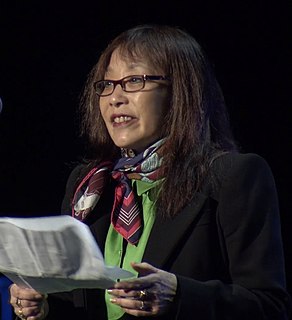Top 24 Quotes & Sayings by Michiko Kakutani
Explore popular quotes and sayings by an American critic Michiko Kakutani.
Last updated on November 8, 2024.
With his mendacity and increasingly virulent attacks on immigrants, Muslims, women, the press, the judiciary, the intelligence services, the F.B.I. - any group or institution that he finds threatening or useful as a scapegoat - Mr. Trump is attempting the Orwellian trick of redefining American reality on his own terms.
One of the things I wanted to do in 'The Death of Truth' was explore some of the larger social and political dynamics that fueled the rise of Trump and brought America to the point where a third of the country will casually shrug off hard facts about everything from the size of inaugural crowds to the crime rate among immigrants.
One of my favorite things, as a critic, was finding books by new writers who possessed a distinctive voice and vision, an inventive gift for storytelling. I also loved immersing myself in works of nonfiction that taught me something about the world, that made the past come alive or shed light on hidden corners of history or the news.
As a piece of writing, The Elementary Particles feels like a bad, self-conscious pastiche of Camus, Foucault and Bret Easton Ellis. And as a philosophical tract, it evinces a fiercely nihilistic, anti-humanistic vision built upon gross generalizations and ridiculously phony logic. It is a deeply repugnant read.
Mr. Robinson and Mr. Kovite have...written a captivating coming-of-age novel that is, by turns, funny and sad and elegiac -\-\ a novel that leaves us with some revealing snapshots of America, both at war and in denial, and some telling portraits of a couple of millennials trying to grope their way toward adulthood.
California belongs to Joan Didion. Not the California where everyone wears aviator sunglasses, owns a Jacuzzi and buys his clothes on Rodeo Drive. But California in the sense of the West. The old West where Manifest Destiny was an almost palpable notion that was somehow tied to the land and the climate and one's own family-an unspoken belief that was passed down to children in stories and sayings.




















